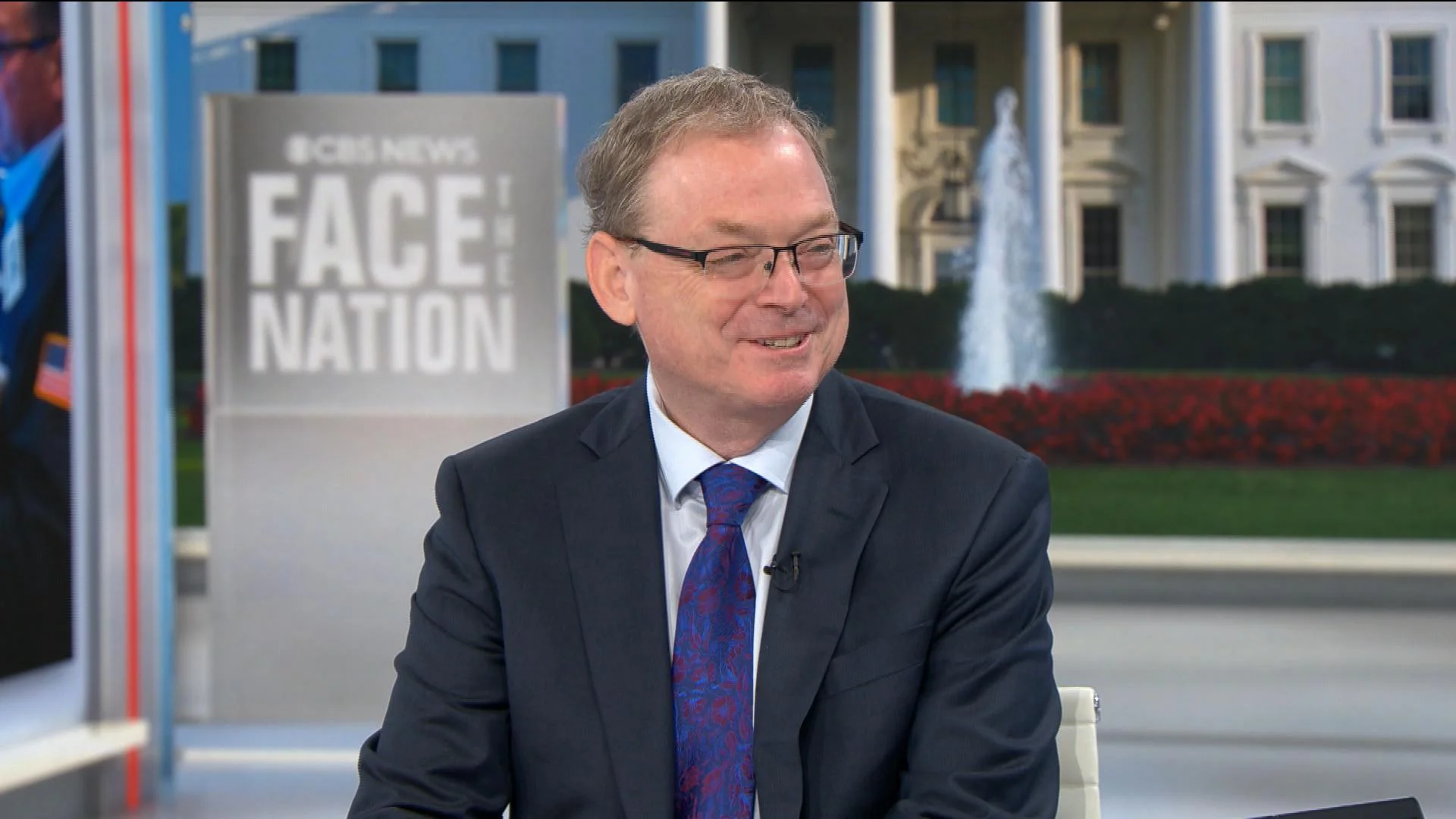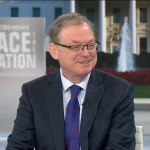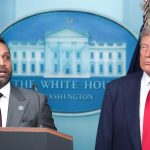The relationship between the White House and the Federal Reserve has long been one of delicate balance, built on the principle that the central bank must be shielded from short-term political pressures in order to safeguard long-term economic stability. This principle, often referred to as the independence of the Federal Reserve, has shaped U.S. economic policy since the Federal Reserve Act was signed into law in 1913. Yet in moments of economic turbulence or political change, questions about whether that independence can withstand political influence inevitably resurface.
- The Principle of Federal Reserve Independence
- Kevin Hassett’s Position on the Federal Reserve
- Historical Tensions Between the White House and the Fed
- The Federal Reserve’s Modern Challenges
- The Importance of Public Confidence
- Expert Opinions on Fed Independence
- Global Implications of U.S. Central Bank Independence
- The Political Debate Around the Federal Reserve
- Looking Ahead: The Future of Fed Independence
- FAQs
- Why is the Federal Reserve’s independence important?
- Has the White House ever influenced the Federal Reserve?
- What happens if the Federal Reserve loses independence?
- How does the Federal Reserve’s independence affect the global economy?
- What role does Congress play in overseeing the Federal Reserve?
- Conclusion
Recently, White House economic adviser Kevin Hassett reaffirmed this principle, stressing that the Federal Reserve must remain independent even in the face of political and economic pressures. His remarks echo decades of debate about how much influence the executive branch should have over monetary policy and highlight the growing importance of central bank credibility in an uncertain global economic climate.
The Principle of Federal Reserve Independence
To understand why Hassett’s comments carry weight, it is important to revisit why the Federal Reserve was designed to be independent in the first place. The U.S. economy relies on the Fed to manage inflation, set interest rates, regulate banks, and provide stability to the financial system. If the central bank were to bow to political demands, it could be tempted to adopt policies that provide short-term gains but lead to long-term economic instability. For example, lowering interest rates before an election may boost economic activity temporarily but could also fuel inflation and financial bubbles.
Historically, the independence of the Federal Reserve has been a cornerstone of U.S. economic credibility. Countries where central banks are heavily influenced by politicians often face runaway inflation and currency crises. By contrast, independent central banks, like the Fed, are seen as reliable arbiters of monetary policy, earning investor confidence worldwide.
Kevin Hassett’s remarks remind both policymakers and the public that the integrity of monetary policy hinges on insulating the Fed from partisan politics. Without independence, the central bank risks losing its most powerful asset: credibility.
Kevin Hassett’s Position on the Federal Reserve
Kevin Hassett, who served as the Chairman of the Council of Economic Advisers during the Trump administration, has long been known for his pragmatic economic outlook. His statement that the Federal Reserve must remain independent reinforces a bipartisan understanding of the central bank’s role. While administrations often disagree with the Fed’s decisions—particularly around interest rate hikes or monetary tightening—Hassett’s remarks highlight the importance of maintaining a clear separation between political agendas and central banking functions.
Speaking about the Fed’s role, Hassett emphasized that monetary policy decisions should be based on economic data, not political considerations. His remarks came at a time when political leaders across party lines have been increasingly vocal about the Fed’s actions, raising concerns about whether the institution can withstand political pressure. By reaffirming the principle of independence, Hassett underscored the danger of undermining public trust in the Fed.
Historical Tensions Between the White House and the Fed
While Hassett’s statement appears straightforward, the history of White House-Federal Reserve relations reveals a more complex story. Presidents from both parties have often clashed with the central bank when monetary policy decisions threatened their political or economic agendas.
President Lyndon B. Johnson famously confronted Fed Chairman William McChesney Martin in the 1960s, urging him to keep interest rates low to finance the Vietnam War and the Great Society programs. Decades later, President Richard Nixon pressured Fed Chairman Arthur Burns to maintain loose monetary policy ahead of the 1972 election, a move many economists believe contributed to the stagflation crisis of the 1970s.
More recently, President Donald Trump openly criticized the Federal Reserve and its then-Chairman Jerome Powell, demanding lower interest rates to stimulate economic growth. Trump’s public comments, at times unusually direct, raised concerns about whether the White House was attempting to interfere with the Fed’s independence.
Hassett’s reminder about the importance of independence can be seen as a reflection of this history—an acknowledgment that while presidents may disagree with the Fed, they must avoid pressuring the institution to serve short-term political goals.
The Federal Reserve’s Modern Challenges
Today, the Federal Reserve faces unique challenges that make its independence even more vital. The global economy is navigating inflationary pressures, rising interest rates, and geopolitical uncertainty, from trade disputes to conflicts that disrupt energy and supply chains. Domestically, Americans are grappling with higher prices for housing, food, and energy. At the same time, the Fed must ensure that financial markets remain stable while avoiding overcorrection that could plunge the economy into recession.
The balancing act is delicate. If the Fed raises interest rates too aggressively, it risks stifling economic growth and triggering job losses. If it keeps rates too low, inflation may spiral out of control. Political leaders often prefer short-term economic relief, but the Fed’s responsibility is to take the long view, even when those decisions are unpopular. This is why Hassett’s call for independence resonates so strongly today—it acknowledges that policymakers must allow the Fed to act without interference, even in politically sensitive times.
The Importance of Public Confidence
Public trust in the Federal Reserve is essential for economic stability. When businesses, investors, and households believe the Fed will act independently and responsibly, they make financial decisions with greater confidence. For example, long-term investment decisions—such as buying a home, expanding a business, or investing in stocks—are influenced by expectations of stable monetary policy.
If the public perceives that the Fed is acting under political pressure, that confidence can quickly erode. Investors may fear that inflation will spiral or that the economy will face sudden instability, leading to market volatility. Maintaining independence is not only about protecting the Fed’s reputation but also about safeguarding the entire economy from unnecessary shocks.
Kevin Hassett’s statement serves as a reminder that public confidence is fragile and that protecting the Fed’s autonomy is one of the most effective ways to preserve economic resilience.
Expert Opinions on Fed Independence
Economists across the ideological spectrum largely agree that central bank independence is critical. Former Fed Chair Janet Yellen once remarked that “a central bank free of short-term political pressure is more likely to deliver better long-term outcomes for the economy.” Similarly, Ben Bernanke emphasized that credibility and independence are the foundation of effective monetary policy.
International comparisons also provide valuable lessons. In countries where political leaders exert direct control over monetary policy, inflation tends to be higher and economic crises more frequent. A study by the International Monetary Fund (IMF) found that economies with independent central banks generally enjoy lower inflation and stronger financial stability. These findings bolster Hassett’s position that independence is not merely symbolic but economically necessary.
Global Implications of U.S. Central Bank Independence
The influence of the U.S. Federal Reserve extends far beyond American borders. The dollar remains the world’s dominant reserve currency, and U.S. interest rate decisions ripple through global markets. Emerging economies, in particular, are sensitive to Fed policy because shifts in U.S. rates affect capital flows, currency values, and debt servicing costs.
If the Federal Reserve’s independence were to be undermined, the consequences would not be confined to U.S. markets. Investor confidence in the dollar could weaken, global markets could become more volatile, and international trust in U.S. economic leadership could erode. Hassett’s emphasis on independence is therefore not only a domestic concern but also a global one.
The Political Debate Around the Federal Reserve
Despite widespread agreement on the importance of independence, debates continue about the Fed’s accountability and transparency. Some lawmakers argue that the Fed should face greater oversight from Congress to ensure it is responsive to the needs of everyday Americans. Others counter that too much political oversight risks undermining the very independence that ensures stability.
Kevin Hassett’s position highlights the ongoing tension between independence and accountability. While the Fed must remain shielded from direct political influence, it must also maintain transparency and explain its decisions clearly to the public. Striking this balance is one of the defining challenges of modern central banking.
Looking Ahead: The Future of Fed Independence
As the U.S. economy faces mounting challenges—from inflationary pressures to shifting global trade dynamics—the role of the Federal Reserve will only grow more critical. Policymakers, economists, and the public must remember that protecting the Fed’s independence is not just about upholding tradition; it is about ensuring the stability of the American economy in the decades to come.
Kevin Hassett’s statement underscores a timeless truth: while politics may shape fiscal policy, monetary policy must remain a data-driven and independent pursuit. The credibility of the Federal Reserve, and by extension the stability of the U.S. economy, depends on it.
FAQs
Why is the Federal Reserve’s independence important?
The Federal Reserve’s independence allows it to make monetary policy decisions based on economic data rather than political pressure. This ensures long-term economic stability, prevents inflationary crises, and maintains investor confidence in U.S. financial markets.
Has the White House ever influenced the Federal Reserve?
Yes, there have been instances where presidents pressured the Fed. For example, President Nixon pushed for loose monetary policy before the 1972 election. More recently, President Trump criticized the Fed’s decisions on interest rates. These examples highlight the constant tension between political leaders and the Fed’s independence.
What happens if the Federal Reserve loses independence?
If the Fed loses independence, monetary policy could become politicized, leading to short-term gains at the expense of long-term stability. This could result in higher inflation, market instability, loss of investor confidence, and potential global economic repercussions.
How does the Federal Reserve’s independence affect the global economy?
Because the dollar is the world’s primary reserve currency, Fed decisions impact global financial markets. Independent monetary policy ensures that the U.S. economy remains stable, which in turn provides confidence for global investors and trading partners.
What role does Congress play in overseeing the Federal Reserve?
Congress has oversight responsibilities over the Federal Reserve, including requiring reports and testimony from Fed officials. However, it does not directly control monetary policy, which is why independence is preserved while still ensuring accountability.
Conclusion
Kevin Hassett’s reminder that the Federal Reserve must remain independent comes at a critical moment for the U.S. and global economy. Independence is not just a theoretical ideal; it is a practical necessity that safeguards credibility, fosters public confidence, and ensures long-term stability.
While political leaders may always have opinions about the direction of monetary policy, protecting the Fed from undue influence is essential to the nation’s economic health. As history shows, the risks of undermining independence are too great, not only for the United States but for the global financial system. By reinforcing this principle, Hassett adds his voice to a long-standing consensus that the Federal Reserve’s independence is one of the most important pillars of modern economic governance.







